Filter by
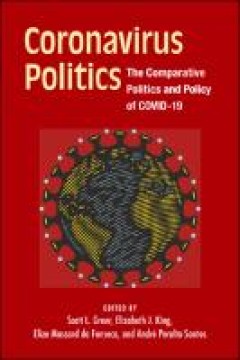
Coronavirus politics : the comparative politics and policy of Covid-19
COVID-19 is the most significant global crisis of any of our lifetimes. The numbers have been stupefying, whether of infection and mortality, the scale of public health measures, or the economic consequences of shutdown. Coronavirus Politics identifies key threads in the global comparative discussion that continue to shed light on COVID-19 and shape debates about what it means for schola…
- Edition
- -
- ISBN/ISSN
- 9780472902460
- Collation
- VIII, 654 p.
- Series Title
- -
- Call Number
- 362.1962414 COR c
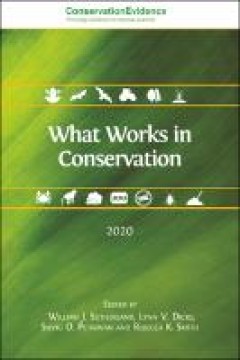
What works in conservation 2020
" Is reduced tillage in arable fields beneficial for farmland biodiversity? Is prescribed burning in grasslands beneficial for bird conservation? Does livestock exclusion from degraded peatlands benefit peatland conservation? Is the provision of artificial shelters effective for subtidal benthic invertebrate conservation? Do wind turbine modifications reduce bat fatalities? Does adding topsoil …
- Edition
- -
- ISBN/ISSN
- 9781783748358
- Collation
- 731 p.
- Series Title
- What Works in Conservation Serie, 5
- Call Number
- 333.7 WHA w
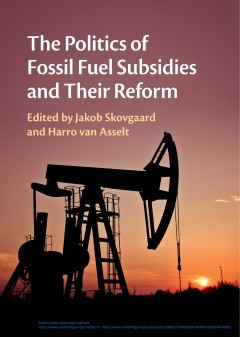
The politics of fossil fuel subsidies and their reform
Fossil fuel subsidies strain public budgets, and contribute to climate change and local air pollution. Despite widespread agreement among experts about the benefits of reforming fossil fuel subsidies, repeated international commitments to eliminate them, and valiant efforts by some countries to reform them, they continue to persist. This book helps explain this conundrum, by exploring the polit…
- Edition
- -
- ISBN/ISSN
- 9781108241946
- Collation
- xxiii, 324p. : ill.
- Series Title
- -
- Call Number
- 338.23 POL p
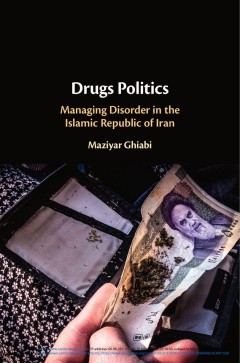
Drugs politics : managing disorder in the Islamic Republic of Iran
Iran has one of the world's highest rates of drug addiction: estimated to be between 2 and 7 percent of the entire population. This makes the questions that this book asks all the more salient: what is the place of illegal substances in the politics of modern Iran? How have drugs affected the formation of the Iranian state and its power dynamics? And how have governmental attempts at controllin…
- Edition
- -
- ISBN/ISSN
- 9781108567084
- Collation
- xix, 343p. : ill.
- Series Title
- -
- Call Number
- 362.2915610955 GHI d
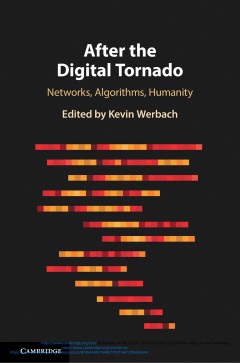
After the digital tornado : networks, algorithms, humanity
Networks powered by algorithms are pervasive. Major contemporary technology trends - Internet of Things, Big Data, Digital Platform Power, Blockchain, and the Algorithmic Society - are manifestations of this phenomenon. The internet, which once seemed an unambiguous benefit to society, is now the basis for invasions of privacy, massive concentrations of power, and wide-scale manipulation. The a…
- Edition
- -
- ISBN/ISSN
- 9781108610018
- Collation
- ix, 239p. : ill.
- Series Title
- -
- Call Number
- 394.334 AFT a

Science and technology governance and ethics : a global perspective from Euro…
This book analyzes the possibilities for effective global governance of science in Europe, India and China. Authors from the three regions join forces to explore how ethical concerns over new technologies can be incorporated into global science and technology policies. The first chapter introduces the topic, offering a global perspective on embedding ethics in science and technology policy. Cha…
- Edition
- -
- ISBN/ISSN
- 9783319146935
- Collation
- viii, 173p. : ill.
- Series Title
- -
- Call Number
- 509 MIL s
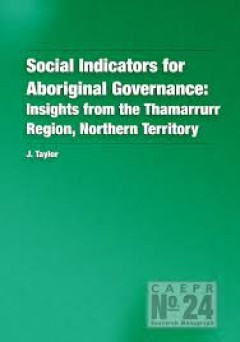
Social Indicators for Aboriginal Governance: Insights from the Thamarrurr Reg…
Thamarrurr is the cornerstone of our society. It is our way of working together, cooper-ating with each other, and it is also the basis of our governance system.In the early days we looked after our families, our clans and our people throughThamarrurr. We arranged ceremonies, marriages, sorted out tribal disputes and manyother things. We were people living as a nation. People livi…
- Edition
- -
- ISBN/ISSN
- 9781920942120
- Collation
- -
- Series Title
- -
- Call Number
- 994.0049915 TAY s
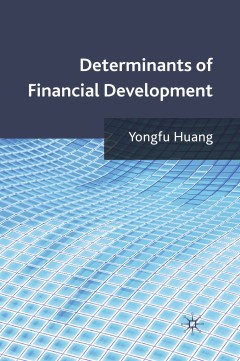
Determinants of financial development
As the world has witnessed the worst financial crisis and climate crisis of our age, during the period of 2007-2009, the issues surrounding the emergence and development of financial markets and carbon markets is becoming an increasingly significant area of research and debate worldwide. By engaging with recently developed methods of research and new areas of practice, this book investigates th…
- Edition
- -
- ISBN/ISSN
- 9780230302495
- Collation
- xix, 206p. : ill.
- Series Title
- -
- Call Number
- 332.042 HUA d
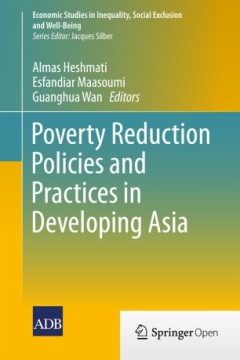
Poverty reduction policies and practices in developing Asia
This book looks at the major policy challenges facing developing Asia and how the region sustains rapid economic growth to reduce multidimensional poverty through socially inclusive and environmentally sustainable measures. Asia is facing many challenges arising from population growth, rapid urbanization, provision of services, climate change and the need to redress declining growth after the g…
- Edition
- -
- ISBN/ISSN
- 9789812874207
- Collation
- xi, 314p. : ill.
- Series Title
- -
- Call Number
- 338.95 POV p

Adult education policy and the European Union: theoretical and methodological…
The European Union is now a key player in making lifelong learning and adult education policy: this is the first book to explore a range of theoretical and methodological perspectives researchers can use to investigate its role. Readership: Educational Researchers and their students
- Edition
- -
- ISBN/ISSN
- 9789462095489
- Collation
- 194 p.; 22 cm
- Series Title
- Research on the Education and Learning of Adults, 1
- Call Number
- 374.924 ADU a
 Computer Science, Information & General Works
Computer Science, Information & General Works  Philosophy & Psychology
Philosophy & Psychology  Religion
Religion  Social Sciences
Social Sciences  Language
Language  Pure Science
Pure Science  Applied Sciences
Applied Sciences  Art & Recreation
Art & Recreation  Literature
Literature  History & Geography
History & Geography